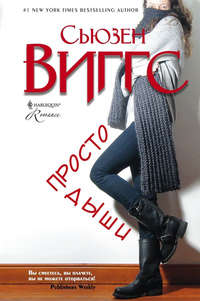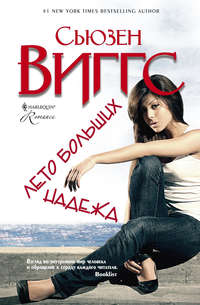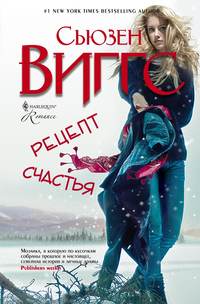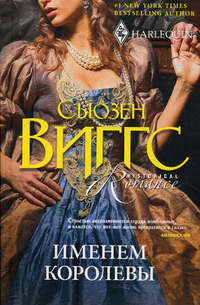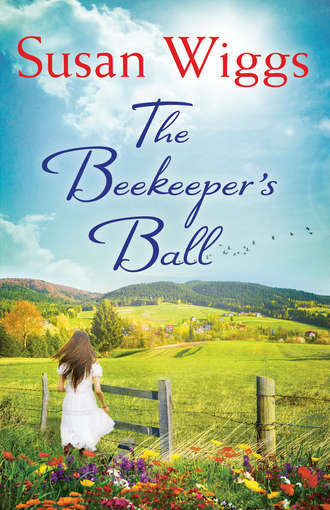
Полная версия
The Beekeeper's Ball
“Thinking gives me a headache.”
She gestured at the row of windows. “You’d probably like a universal gym and giant speakers blaring heavy metal music.”
“Hey, thanks for reducing me to a cliché. Actually, I was going to suggest yoga mats and gong music.”
The suggestion surprised Isabel. She could instantly picture a yoga retreat here. Maybe having Cormac O’Neill poking around and commenting on everything might turn out to be the start of something good.
Yet the thought of a stranger covered in beestings, staying in the house, swearing like a reject from a busy restaurant kitchen, was unsettling.
“Shit, oh, man.” As if he’d read her thoughts, he staggered and grabbed the doorknob.
“What’s the matter?” She clutched at his arm. “Are you all right?”
“Yeah, sorry, I’ll be okay. Post Adrenalin letdown,” he said. “Feels like vertigo.”
“What can I do?”
“Maybe a rest and a shower.”
She escorted him back to Erik’s room. “All right,” she said, feeling flustered again, “you should find everything you need here.”
He paused, studying her. “I already have.”
* * *
Cormac O’Neill had been to a lot of places in his life, too many to count. But as he stood at the window of his room at Bella Vista, he couldn’t recall a place that rivaled the beauty of the Sonoma hacienda. Looking out at the orchards and fields, he felt a million miles away from the war-torn places of the world, the airports and grimy cities, the long barren stretches of scorched earth in the foreign lands he’d visited. During his career, he had lived in mud huts and tents, in hovels and out in the open, being eaten alive by bugs or shivering in an unheated room. He could do worse than a luxurious villa in Archangel, that was for sure.
Staggering off an overseas flight at SFO this morning, he’d borrowed a buddy’s Jeep, gulped a double shot of espresso and had driven straight from San Francisco to Archangel, hoping to relax and sleep off the jet lag. Instead, he’d encountered the skittish and suspicious Isabel, who had kneed him in the groin. Next came the swarm of bees and the trip to the urgent care place. He wondered what the next disaster would be.
When Tess had told him about the book project, she hadn’t mentioned hostile women and swarms of bees. In fact, she’d characterized it as a working vacation of sorts, a way for him to recover from his bum knee by soaking up the charms of Sonoma County.
In contrast, Bella Vista was lush and seductive, the landscape filled with colors from deep green to sunburned-gold. Gardeners, construction workers and farm workers swarmed the property. Isabel Johansen was in charge; that had been clear from the start. Yet when she’d shown him to Erik’s room, she’d seemed vulnerable, uncertain. Some might regard the room as a mausoleum, filled with the depressing weight of things left behind by the departed. To Mac, it was a treasure trove. He was here to learn the story of this place, this family, and every detail, from the baseball card collection to the dog-eared books about far-off places, would turn into clues for him.
And holy crap, had Isabel looked different when she’d given him the nickel tour. Unlike the virago in the beekeeper’s getup, the cleaned-up Isabel was a Roman goddess in a flowy outfit, sandals and curly dark hair.
Mac reminded himself that meeting Magnus Johansen was the whole point of this trip. At the moment, he didn’t feel like meeting anyone. The meds he’d been given, combined with the letdown after the shot of epinephrine, made his brain feel like cotton candy.
Rummaging through his duffel bag, he broke out the cream from the pharmacy and dabbed some on the itchy welts covering his arms, legs and hands. There were bites on his back he couldn’t reach, so he scratched himself on the bedpost, seeking relief.
He hoped the bees were not an omen of mishaps to come. He could always hope this morning’s disasters were an anomaly. His plan was simple. He would gather information about Magnus Johansen, a war hero turned orchardist, then settle in and write the story. It was what he did, what he was good at—telling other people’s stories.
The PR people who worked for his publisher liked to make much of his background. He’d been raised with five brothers by parents who worked in the diplomatic corps, traveling to the far corners of the world, their mission to spread peace and understanding. It all sounded exotic and glamorous, although for a kid, the reality had been far different—an endless succession of airports and foreign hotels, stifling tropical heat and painful immunizations and a new school every other year. The upbringing had taught him much about the world; he’d learned a few languages and had figured out how to be ready to go at a moment’s notice. But his way of life had never taught him how to stay in one place. The concept of home was foreign to him.
He went into the immaculate bathroom and took a quick shower in the old-fashioned claw-foot tub. There were perfumed soaps and fancy shampoo and lotions. Damn, it felt good to shower off the travel and the jet lag. He wanted to stand there all day, but he was here for a job. He put on clean shorts and a shirt, then put the knee brace back in place. The zipperlike surgical scar wasn’t pretty, but at least his knee didn’t feel as though it was on fire anymore.
He was supposed to be taking care of himself after his injury. The doc said his knee would never heal if he didn’t follow a program of physical therapy and exercise.
There was a knock at the door. “Hey, Mac,” said a voice. “It’s me, Tess.”
Leaning on his cane, he hobbled over and let her in.
She was as pretty as ever, red hair, tall and willowy. Actually, she was even prettier than he remembered. He didn’t recall the brightness of that smile. “Tess Delaney. Fancy meeting you here.”
“It’s great to see you,” she said. “We didn’t know when you’d get here.”
“I caught a flight from Taipei on standby. Borrowed a set of wheels in San Francisco and here I am.”
“Wow, that was quick. Oh, my gosh, it’s been too long.” With that, she gave him a brief hug. “I’m really glad we stayed in touch, Mac. Thanks for coming.” Her eyes sparkled as she grinned at him. “What?” she asked. “You’re looking at me funny.”
“You look really good, Tess. Glowing. Hey, are you—”
“About to marry the love of my life, yes. And no, I’m not pregnant. Just...in a different place than I was last time I saw you. A much better place, literally and figuratively.”
He sensed a mellowness about her he didn’t recall from before, as if her sharp edges had been softened. Maybe it was this place—Bella Vista. Maybe it would soften him, too. Except he didn’t need softening.
She stepped back and regarded him from head to toe. “You don’t look so hot. Isabel said you got stung.”
“Stung’s the word for it,” he murmured. “I’ll be okay. She was nice enough to take me to a clinic.”
“Good. My sister’s super nice.”
“I’ll take your word for it.”
She set her hands on her hips. Tess had put on a little weight, and the curves looked good on her. She’d been really skinny in Krakow, skinny and stressed out. “She said you got off on the wrong foot this morning.”
“Ha-ha.”
She checked out his knee brace. “What happened?”
“Torn ligaments. I’ll heal.”
“Are you hungry?”
“You know me. I can always eat.”
“You came to the right place. Let’s grab something for you from the kitchen, and then we’ll go find Magnus.”
The “something” turned out to be a wedge of the most amazing cake he’d ever tasted. It had cream in the middle, a crust of honey and almonds on top. He crammed half a wedge into his mouth and moaned aloud. “Damn, that’s good,” he said around the mouthful. “Damn.”
“I already ordered it for my wedding breakfast,” said Tess.
“It’s called Bienenstich—bee sting cake,” said Isabel, coming into the kitchen. “Appropriate, under the circumstances.”
He turned to face her, his cheeks stuffed with food like a chipmunk’s. Then he swallowed the bite of food. “It’s delicious. Did you make it?” he asked, not taking his eyes off her. She didn’t look much like her sister. While Tess had red hair and freckles, Isabel had olive-toned skin, dark eyes and full lips, like a flamenco dancer or maybe an Italian film star swathed in veils.
“I did,” she said. “It’s a German tradition. You should have coffee with it.” She went over to an espresso machine that resembled the chrome front of a Maserati, and got to work.
Coffee. Oh, God.
He took out his phone, which was also his work computer, voice recorder and general organizer of his life. “I’m not getting a good signal here. Is there a wi-fi password?”
“I should remember that,” said Tess, “because we just upgraded. When I first got here, you couldn’t even get a signal. Isabel, do you remember the password?”
“‘CATSEX!!’ all in caps, with two exclamation points.” She shrugged. “I didn’t pick it.”
“Isabel’s the best cook in the world,” said Tess, raising her voice over the grind and hiss of the espresso maker. “We eat like this all the time at Bella Vista.”
He connected with his phone and scrolled through a depressingly long queue of unanswered emails. A freelancer’s dilemma—you were never really free. You just moved from one assignment to the next. He deleted a few nonessential notes, then pocketed the phone and helped himself to another piece of coffee cake, feeling charitable now toward the bees that had produced the deep, rich honey that flavored the topping. Seriously, he couldn’t remember the last time food had tasted so good to him.
After the espresso machine spewed forth a cacophony of grinding, whistling and a deep-throated gurgling, Isabel set a frothy cappuccino in front of him. The rich aroma rose on a wisp of steam.
“Okay, that settles it.” He wiped his mouth with a napkin. “I’m never leaving.”
“Ha,” said Tess. “You never stay.”
She knew him better than he thought. The longest he’d ever lived in one place was during college. After that, his permanent address was his literary agent’s Manhattan office.
Here, he felt like a stranger in a strange—and extremely seductive—land. In contrast to the places of his past, Bella Vista seemed weighted by a sense of permanence—the old country house with its courtyard and patios, the rustic stone barn and machine shop, outbuildings and weathered work sheds, the acres of age-gnarled apple trees, now covered in springtime blooms. He wondered what it would be like to watch the seasons change all in one place, year after year.
“You say that like it’s a bad thing,” he told Tess.
She gave a dismissive sniff, then turned to her beauteous sister. “He never stays. Mac is a rolling stone.”
Isabel offered a bowl full of raw sugar crystals. “Good to know,” she said.
“I’m wounded,” he said, adding sugar to his coffee. “Why is it good?”
“I like to understand who I’m dealing with. So do you prefer Mac or Cormac?”
“Either.” The piercing mechanical whine of a saw came from somewhere outside. “You’ve got a lot of work going on around here,” he said. “If this is a bad time—”
“It’s a perfect time,” Tess interrupted.
He sensed what she wasn’t saying. Magnus Johansen wasn’t getting any younger.
When the shrieking of the power saw stopped, Tess asked, “So what do you think about Isabel’s project?”
What the hell did he care? The whole idea of running a vast estate, regardless of how historic it was, felt like way too much of a commitment to him.
“She’s turning the place into a destination cooking school. Did she tell you?” Tess beamed with pride.
“She’s standing right here,” Isabel reminded them.
“Cool idea, huh?” Tess asked, ignoring her sister.
“If you’re into cooking,” said Mac. “And school.”
“I take it you’re not,” Isabel said.
“I’m here for Magnus,” he said. “In the meantime, I’ll try to stay out of your way.”
“Ernestina told me he’s out with the workers in the new section of the orchard.” She looked him up and down, her gaze hard to read. “It’s a few hundred yards away. Can you walk that far?”
He nodded, gripping his cane as he studiously ignored the twinge in his bad knee. “Sure, let me grab my camera.”
“You’re a photographer, too?” asked Isabel when he returned with his gear. “It looks like a bazooka gun.”
“I take a lot of my own pictures,” he said. He’d found, in his work, that putting the camera between himself and a subject sometimes created a necessary boundary. Or if that wasn’t needed, it was a way to capture a moment, a mood or nuance when words weren’t enough.
The three of them stepped through a set of French doors leading to the central patio, which was swarming with even more workmen. Isabel led the way, descending a set of yellow limestone steps. He couldn’t stop himself from checking her out from behind. He kind of wished she wasn’t wearing all that flowy stuff because he suspected there was something much more interesting underneath.
Pretty women were one of his several weaknesses. There was something about long hair, shapely legs, tanned skin, smooth and soft... He couldn’t remember the last time he’d held a woman, inhaled the scent of her hair, pressed his lips to the pulse in her neck. He nearly stumbled over a tree root as he imagined what Isabel Johansen smelled and tasted like.
She turned back, scowling at him. “Are you all right?”
“Fine,” he said, clearing his throat. “Just taking in the atmosphere.”
They came upon a crew of workers with long-handled pruners. Speaking in Spanish that sounded smooth and natural, Isabel asked one of them where Magnus was.
One of the guys gestured at the end of a row of trees and waved. “He’s over by the new trees from the nursery beds.”
They headed down another row of trees. At the end of the row, Mac could see an old man silhouetted against the hillside, a ladder on one shoulder and a cane in his other hand. Tall and slender, in overalls and a work shirt, white hair sticking out from under a flat cap, Magnus Johansen moved with the ease of a much younger man.
Isabel called out to get his attention and he stopped, setting the ladder on the ground. He took off his cap and waved it at them.
Mac paused to take a candid picture while Isabel and Tess walked ahead, framed by the rows of arching trees in bloom. A timely breeze created a flurry of petals that filled the air like an unseasonable snowstorm. The camera lens captured the tableau of the old man and his two beautiful granddaughters, the moment gilded by sunshine filtering through the leaves. Nice.
Mac put the cap back on the lens and approached him. “Cormac O’Neill,” he said, shaking hands. “Good to meet you in person.”
Magnus’s grip was firm but brief. “I’m very glad you’re here, and on such short notice,” he said with a subtle lilt in his speech hinting at his Danish heritage. “Welcome to Bella Vista. I see you’ve met my granddaughters.” Though his face was pale, there was a glow of pride in him when he looked at Tess and Isabel. “I hope they gave you a proper welcome.”
Cutting a glance at Isabel, Mac thought about the knee to the groin and the attack of the killer bees. “Yep, she made me feel right at home.”
“You’ve come at a busy time. But the springtime is my favorite.”
“The scenery here is amazing,” Cormac said. He surveyed the area. The weather was almost unbearably perfect today, a stark contrast to the scorching deserts, barren tundras and steamy jungles he often had to visit on assignment. In addition to the construction crew at the house, there were people in every section of the orchard, some working alone, some in teams. Farming was as foreign to Mac as picking out draperies. “And your home is beautiful.”
“Yes. I have enjoyed much good fortune in my life.”
It was a startling statement, given what little Mac knew of the man. Magnus Johansen had lost his family in the war, and had outlived his only son and his wife. He had survived a head injury not so long ago. And yet here he stood, elderly but still proud, beaming at his granddaughters. Mac was suddenly more interested in Magnus, anxious to find out how the man had endured all that, yet could still call himself lucky.
“So,” said Magnus. “We must get to know one another.”
“My thoughts exactly.”
“I’ve read some of your books. I’m honored that you’re going to be writing about me. I warn you, though. I have a very long story to tell.”
Mac’s gaze kept straying to Isabel. She clearly didn’t like him, and despite what his libido was telling him, he didn’t like her, either. Still, there was something about her, not just the slender ankles and the pretty dark hair, but some vibe that drew him, even as he told himself she was a complication he didn’t need in his life.
“I’ve got time,” he said.
Chapter Five
“So how do you prepare for your first interview with your subject?” asked Isabel the next morning.
After dragging himself out of bed, Mac needed coffee, not questions. He noticed a soft hissing sound coming from the espresso machine. “So that magic cappuccino you made me yesterday—was that a one-time event or can I get another?”
“Depends on how you ask.”
“Please. Begging here. Charge me anything you like. Put it on my tab.”
“I might just do that.” She didn’t smile, but her eyes were light as she ground some coffee beans into a one-shot filter.
Mac inhaled the aroma and watched her expertly pull the shot and then steam the milk with a wand. He liked watching her work, each movement economical, efficient. He liked watching her, period. What the hell? If he was going to be stuck in paradise for a while, he might as well enjoy the view.
“You and Grandfather can have coffee on the patio, and then get to work on your project. It’s quiet out there until the workmen arrive. After that, he can show you more of Bella Vista.”
“Thanks. Will you and Tess be joining us?”
She hesitated, glanced back over her shoulder at him. “It’s Grandfather’s story.”
“You’re part of it. Just figured you might want to hear what he has to say.”
“Oh. Well, I suppose....”
“Sure we do,” said Tess, coming into the kitchen. She was wearing some crazy headpiece, a white net thing with a big fake flower made of feathers. Noticing his stare, she said, “Do you like my fascinator?”
It looked weirdly similar to Isabel’s beekeeping veil. “Your what?”
“My fascinator. I’m trying out different looks for the wedding.” She turned her head this way and that. Tess was a pretty woman—and who didn’t like a redhead—but the lopsided headgear didn’t do much for her.
“I never give fashion advice before I’ve had my morning coffee,” he said.
Isabel set a perfect bowl-shaped cup of cappuccino in front of him. “Good answer.”
“Bless you,” he said, savoring the first creamy sip.
Tess picked up a painted serving tray. “Let me help you carry.”
“Thanks.” Isabel held the door leading out to the patio. Mac followed with his coffee and his cane, and a satchel of files and photographs he’d stayed up late studying last night. Magnus sat at a wrought iron and tile table with his coffee, the two cats swirling around his ankles. “Grandfather, is it all right if we join you for a bit?”
“Of course. Particularly since you’ve brought sustenance.” He eyed the tray of food.
It looked like a food magazine layout, featuring a variety of cheeses with fresh berries on brightly painted Italian pottery, and a tiny glass container of honey with the smallest spoon he’d ever seen.
Isabel laced a thread of honey across the cheeses. “These are my favorite honey and cheese pairings. Comté, Appenzeller and ricotta. I had my first honey harvest last summer—a small one. That’s when I realized I needed expert help with my beekeeping.”
“Sorry I wasn’t your guy,” said Mac.
“Please, sit down and let’s enjoy the morning.” Magnus gestured at the chairs.
It was all Mac could do not to wolf down the whole snack tray. But he’d been trained by the best, his redoubtable mother, who had taught her six sons diplomatic protocol and etiquette as if it were her job. He made himself a small plate, sipped his coffee and settled in, curious to find out more about Magnus, his beauteous granddaughters and the place they called home.
Magnus smoothed his weather-beaten hands over the legs of his trousers. “So. Here we all are. It is hard to conceive of, my life in a book. I don’t know where to begin.”
“It doesn’t matter,” Mac said. “Whatever crosses your mind.”
“Bella Vista,” Magnus said without hesitation. “This place is always on my mind. Perhaps I even imagined it before I realized it was quite real.” He flexed his fingers, resting them on his knees, and said, “When I was a boy in Denmark, we would go to the cinema on Saturday afternoons, and naturally my favorites were the films about cowboys and Indians in the Wild West. I always envisioned America as this vast, unsettled land, a place of endless opportunity. It never looked like this in the picture show. My schoolmates and I yearned to come here, but I never thought I would. It was more like a place of dreams.”
In an odd way, Mac could relate. He, too, had grown up far from the States, and he, too, had been drawn to its larger-than-life, practically mythic aspect. His impressions had been formed by watching old VHS tapes of Nickelodeon series. Instead of the Wild West of Magnus’s imagination, he had been filled with mental pictures of schools populated by perky girls with ponytails, a row of candy-colored lockers and stern but good-hearted teachers capable of solving a spunky kid’s problems before each thirty-minute segment was up.
“Do you recall when you made the decision to come here?” Isabel asked.
The old man rested his hands atop his cane. “There was no decision. It was an act of desperation. And survival.”
Mac put his phone on the table. “I’ve got a digital recorder app. Do you mind?”
“No, of course not. That is why you’re here.”
From the corner of his eye, Mac could see Isabel stiffen, but then she settled back and waited quietly.
“It was not something my family aspired to or wanted for me. We would have been content to live out our lives in Denmark. We—my parents, my grandfather and myself—were comfortable in Copenhagen,” said Magnus. “We had all that we needed. We weren’t wealthy, though we were certainly comfortable. My father worked as a civil servant. My mother kept house, and her passion was for growing things. She prized her apple trees, and the whole neighborhood loved the Gravensteins she cultivated. Not the most beautiful fruit ever to grace the table, but surely the tastiest.”
He leaned back in the chair, his pale eyes looking into a past Mac could only imagine. “I was but a boy when the Nazis arrested them and took them away. A youngster still in his school years doesn’t get to decide anything, least of all whether or not to emigrate to America. It was all I could do to avoid getting caught myself.”
“Do you know why they were arrested?”
“For harboring a Jewish man and his daughter. My uncle Sweet and little cousin Eva. We weren’t really related, of course, but that is the story we gave out.”
“Eva...the woman you eventually married.”
“Yes,” he said, smiling at Isabel. “My Eva. Although in 1940, when she first came to live with us at the house in Copenhagen, I considered her a pest. Sweet was born a Dane, same as my father, but his wife was a member of the chalutzim—that is the Hebrew term for pioneers. Thousands of them came to Denmark from eastern Europe or Germany, and they were welcomed by the Danish and by King Christian. They had come for agricultural training, the goal being to eventually move to Palestine. But Sweet’s wife had no interest in farming.” Magnus’s mouth turned briefly into a curl of disgust. “She wanted only to be rich and comfortable, and she believed Sweet would give her that. He didn’t seem to care for money, though. He was a photographer, and a good one at that. He turned the basement of our house into a darkroom.”






